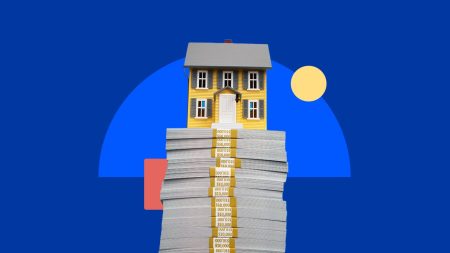Israel Sebastian/Getty Images
Key takeaways
- Even without a job, you can generally get an emergency loan if you can provide a reliable source of income.
- Lenders that offer loans without proof of income may be predatory and charge triple-digit APRs.
- If you have a low credit score or high debt-to-income ratio, you could face high fees and may be more likely to default.
- If you don’t have a steady income, look into loan alternatives like assistance programs, repayment plans or help from family and friends.
If you’re facing financial hardship but don’t have a job, you may still apply for an emergency loan and qualify. Lenders care more about your ability to repay the loan than your employment status. That means if you can show a reliable income source, such as disability benefits or spousal income, you might still be eligible for an emergency loan.
In addition to income, lenders also assess your credit score and debt-to-income (DTI) ratio when evaluating your application to get a full picture of your financial standing. These factors also help determine the rate and terms of your loan.
Eligibility requirements for emergency loans if you don’t have a job
Emergency loans are short-term personal loans that are typically used to cover urgent, unexpected expenses — like medical bills, car repairs or emergency travel. Because of their urgency, lenders may be more flexible with employment criteria, especially if you have other qualifying factors.
Income
While you may qualify for an emergency loan without a job, you still need to demonstrate your ability to repay the loan. Therefore, you’ll still need to show you have a steady and legal source of income. Even if you’re not working a traditional job, lenders may accept the following sources of income:
- Social Security or disability benefits
- Unemployment benefits
- Alimony or child support
- Spouse’s income
- Pension or retirement income
- Recurring interest or dividends from savings or stocks
- Rental income
- Royalties
- Freelance income
- Contract work
- Side hustle or gig economy income
Additionally, if you have a pending employment opportunity, the lender may also accept an offer letter if the start date is within a certain timeframe.

The art of the side hustle
Want to learn more about side hustles and how they can fill those financial gaps? Senior writer Denny Ceizyk shows how side hustles build financial resilience and has some encouraging words for anyone who wants to try.
Learn more
Debt-to-income ratio (DTI)
Lenders like to see that your debt-to-income ratio is below 50 percent. If they believe you don’t have enough income to take on additional loan payments, or if you have several credit cards as well as other personal loan debt, you could be denied funding.
Credit score
Some lenders offer emergency loans for borrowers with bad credit, but those loans will have some of the highest interest rates the lender offers. Your credit score indicates how well you manage your debt, so a low score tells lenders that it could be riskier to lend to you.
Check your credit score before you apply, so you know what to expect. An excellent credit loan typically comes with lower APRs, faster approval and may require less documentation. On the flip side, a lower credit borrower may expect higher rates and a more in-depth qualification process.
If you have time, work on improving your credit score by making on-time payments and paying down your debt. You can also review your credit report and flag any mistakes that may be lowering your score.
Beware of predatory loans
If your credit score is extremely low or nonexistent, there are also products that don’t require a credit check. Also known as payday loans, this type of predatory financing can have rates over 600 percent. These loans leave you facing a debt cycle that can put even more strain on your budget the next time you face an emergency. If you can’t qualify for a personal loan and have an urgent financial need, explore payday loan alternatives instead.
Collateral
A secured loan is backed by collateral, like a car or savings account, which can help you qualify. However, this means the lender can seize your asset if you default.
Before agreeing to use collateral:
- Understand the risks. Losing a vehicle or home could create deeper financial trouble.
- Make sure both parties understand the terms and ramifications.
Emergency loan alternatives
Emergency loans often come with high costs and short repayment periods. If you can’t qualify or afford an additional monthly payment, consider these safer alternatives:
- Talk to your creditors. Negotiate a payment plan or payment extension.
- Seek help from local nonprofits. Call 211 to get connected to food, utility or rent aid.
- Apply for an emergency credit card. It may be difficult without a job, but you may still be able to qualify with a regular source of income. And they can help you avoid borrowing a large amount if you only need a few hundred dollars.
- Borrow from family or friends. Proceed with caution when taking this route. Bankrate loans writer Brittany Howard says, “Borrowing from family and friends can be tricky. If you go that route, treat it professionally and write down terms that you can both agree to — and then stick to them.”
Bottom line
If you decide an emergency loan is the right decision, take the time to compare emergency loan rates before you apply. As long as you have a reliable source of income, you may still be able to find emergency loans with no job. Be sure to consider the alternatives to avoid paying high interest, especially if finances are already tight.
Frequently asked questions
Why we ask for feedback
Your feedback helps us improve our content and services. It takes less than a minute to
complete.
Your responses are anonymous and will only be used for improving our website.
Help us improve our content
Read the full article here












